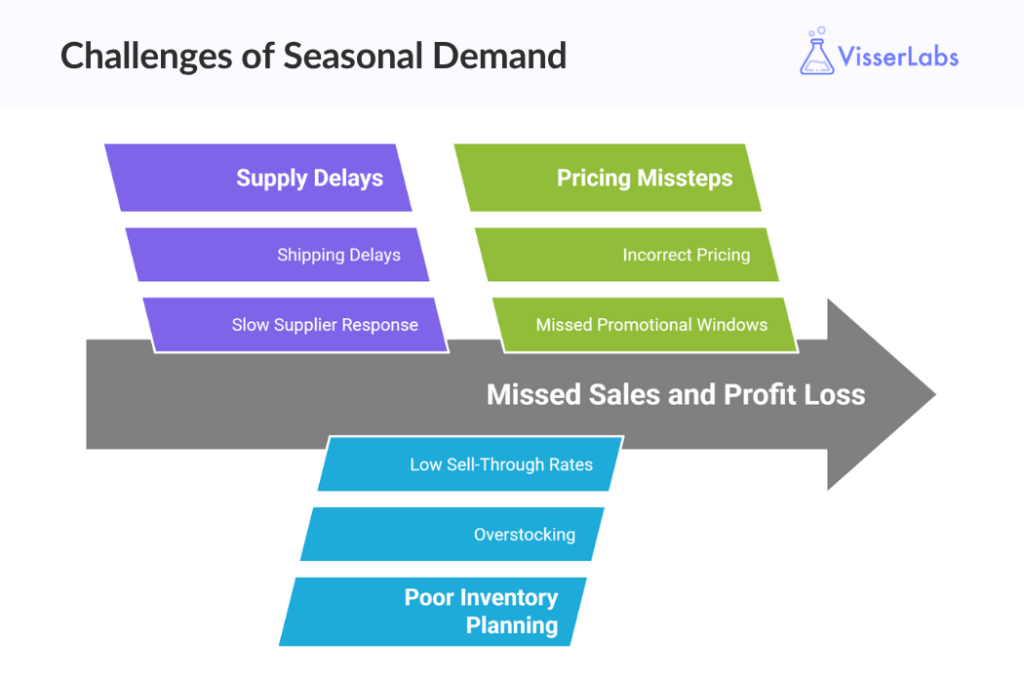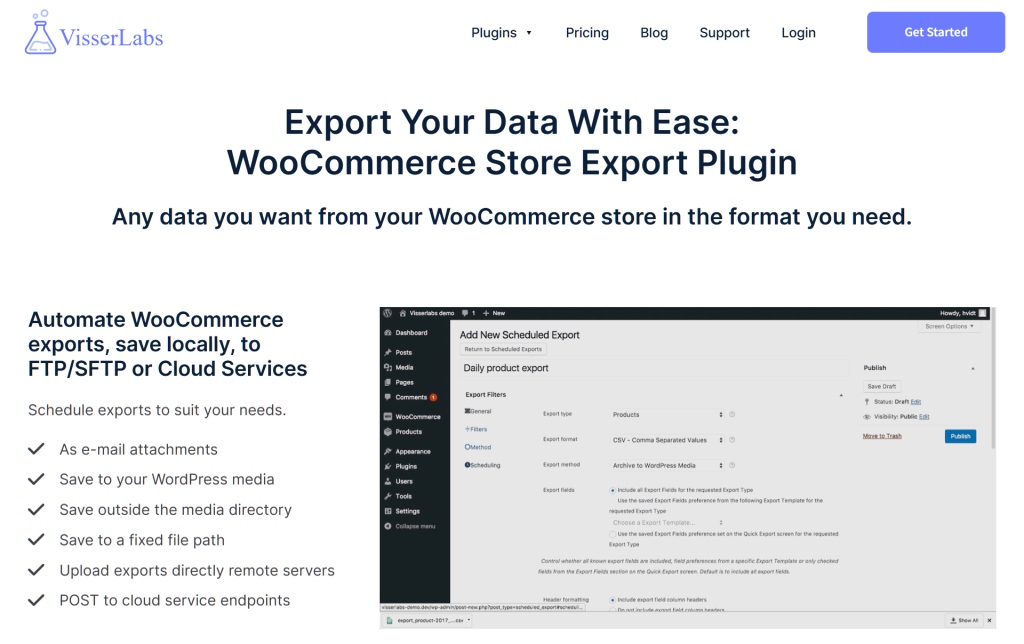
Seasonal demand causes predictable shifts in customer activity that directly impact online stores. Planning ahead, therefore, helps store owners avoid stockouts and maintain profitability.
Additionally, by analyzing past trends and behaviors, you can time promotions better, adjust pricing confidently, and manage stock levels more effectively. These actions depend on actual performance data rather than assumptions or instinct.
In this article, you’ll learn how to forecast seasonal demand, plan inventory, and manage seasonal product strategies using clear examples and reliable tools.
What Is Seasonal Demand And Why Does It Matter?
Seasonal demand refers to predictable increases or decreases in product sales based on time of year. These patterns affect what customers buy and when, especially around holidays, weather changes, or school schedules.
Understanding seasonal demand matters because it helps store owners avoid stockouts or overstocking and run more profitable campaigns. It also leads to improved customer satisfaction during peak periods.
For example, demand for swimwear spikes in early summer while sales for coats climb in winter. The better you prepare, the smoother your operations.
What Are The Common Challenges Of Seasonal Demand?
The main challenges of seasonal demand include supply delays, poor inventory planning, and pricing missteps. These can create missed sales, shipping delays, or leftover stock that cuts into profits.

Some common problems store owners face include:
- Slow supplier response during demand spikes
- Overstocking products with low sell-through rates
- Missing key promotional windows
These issues often trace back to not planning ahead or not using store data to make decisions. That’s why early demand forecasting and inventory control are essential.
What Are The Benefits Of Seasonal Demand Planning?
Planning for seasonal demand helps businesses prepare smarter and react faster to changing customer needs. This preparation supports better margins and improves the customer experience.
Key benefits include smarter ordering and fewer dead stocks, helping you maintain better control over your store’s inventory during busy seasons.
- Timely promotions with higher ROI
- Accurate resource allocation for support and fulfillment
When your team expects the surge, you can meet it with confidence.
How Can You Forecast Seasonal Demand Accurately?
Accurate seasonal demand forecasting uses past sales data and market signals to predict upcoming demand changes. Moreover, it’s best done at least a quarter in advance, using performance data from the same season last year to guide projections and planning.
Steps to forecast seasonal demand:
- Export last year’s sales data by product category and month
- Compare trends from year to year for recurring patterns
- Adjust for recent promotions, supply changes, or trends
- Watch external indicators like weather, holidays, and social media
💡 Bonus tip: Use Store Exporter Deluxe to extract historical sales and inventory data. It provides a clean export of your WooCommerce order reports—ideal for accurate seasonal demand forecasting.
How Can You Use Data To Manage Seasonal Inventory And Pricing?
Smart marketplace inventory management and pricing tactics based on data help stores prepare for and respond to seasonal changes. This avoids reactive decision-making and ensures a smoother high-demand period.

For inventory, it’s important to:
- Review sell-through rates: Identify how quickly items are selling over time so you can focus on high performers.
- Place early orders for your best-performing products: Order ahead of time to avoid stockouts during busy periods.
- Align restocks based on your forecasted demand: Use past sales data to schedule restocks when you expect the most demand.
For pricing, try combining:
- Tiered or early-bird discounts: Offer lower prices for customers who buy early to increase early-season sales.
- Limited-time offers to drive urgency: Create short-term promotions to encourage quicker purchases.
- Past pricing outcomes for reference: Analyze which pricing strategies performed well in previous seasons to guide current decisions.
These data-backed strategies help reduce overordering and capture more revenue during peak seasons. Among these, seasonal pricing stands out as a targeted way to respond to predictable shifts in customer demand.
💡 Bonus Tip: Once your inventory and pricing plan is in place, AI content tools can help you turn those seasonal insights into targeted product descriptions, landing pages, and email campaigns that match real customer demand.
What Is Seasonal Pricing Strategy and How Does It Work?
A seasonal pricing strategy adjusts product prices based on expected changes in demand. It encourages early purchases and maximizes revenue during peak demand periods.
Examples include discounting off-season items to clear inventory or raising prices when product availability is limited.
This pricing approach supports better cash flow and aligns price points with expected customer behavior.
How Can Store Exporter Deluxe Help Manage Seasonal Demand?

Store Exporter Deluxe helps store owners forecast seasonal demand, track product performance, and plan smarter promotions. It’s one of the top WooCommerce data export tools available.
With Store Exporter Deluxe, you can:
- Export past seasonal order and product data
- Filter reports by product type, date range, or customer segment
- Schedule recurring exports to automate WooCommerce data handling
This allows you to analyze past demand and act early.
💡 Bonus tip: If you import products from external systems, pair Store Exporter Deluxe with Product Importer Deluxe. This keeps your store’s seasonal inventory synced across platforms.
Final Thoughts: How Should Online Retailers Prepare For Seasonal Demand?
Retailers who prepare for seasonal demand based on data are more likely to stay profitable and avoid costly mistakes. The key is to plan ahead, review your store’s past data, and act early.
To recap, here’s what you need to explore:
- What is seasonal demand and why it matters
- Common challenges of seasonal demand
- Benefits of seasonal demand planning
- How to forecast seasonal demand accurately
- Smart inventory and pricing tactics using data
- How Store Exporter Deluxe supports seasonal demand planning
Store Exporter Deluxe is a top solution for customer data export. Explore our plans and features to find which works best for your store.









